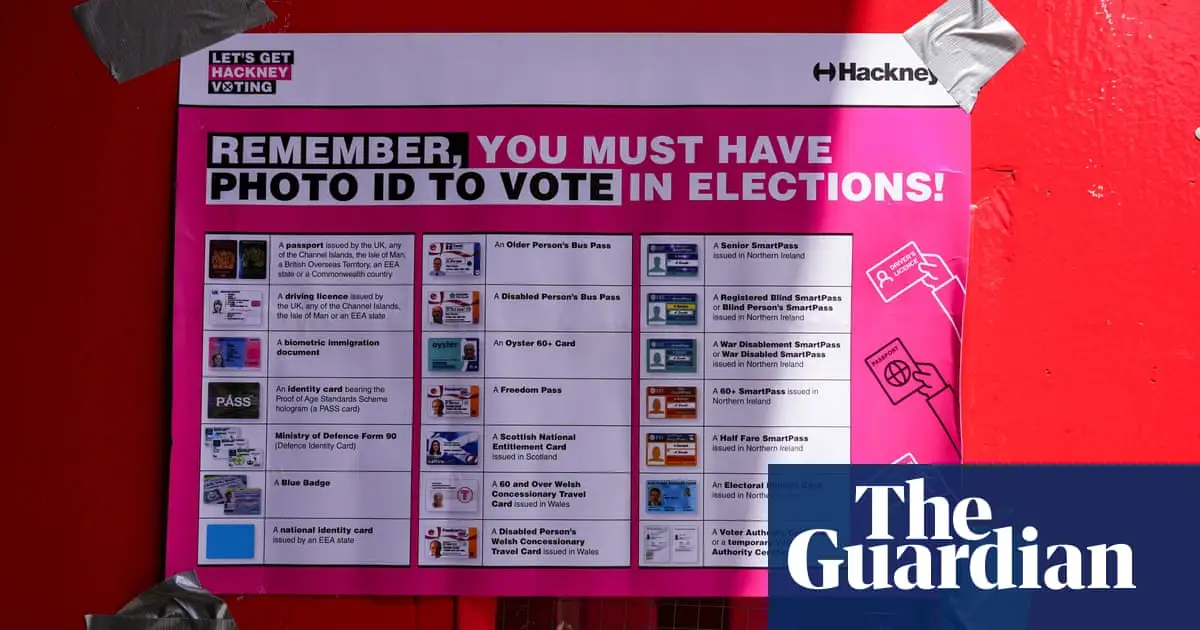- cross-posted to:
- neoliberal
- cross-posted to:
- neoliberal
More than 400,000 people may have been prevented from voting in the general election because they lacked the necessary ID, with those from minority ethnic communities more than twice as likely to have experienced this, polling has suggested.
Of those surveyed by More In Common, 3.2% said they were turned away at least once last Thursday, which if reflected across the UK would equate to more than 850,000 people. Of these, more than half said they either did not return or came back and were still unable to vote.
Among people turned away at least once, about a third had ID that was not on the relatively narrow list of permitted documents; about a quarter said the name on their ID was different to that on the electoral register; and 12% said they were told the picture on the ID did not match their appearance.
The poll of more than 2,000 people across Great Britain, coordinated by the campaign group Hope Not Hate, also indicated that the voter ID rules, used last week for the first time at a general election, disproportionately affected minority ethnic people.
It found that 6.5% of voters of colour were turned away from a polling booth at least once, compared with 2.5% of white voters.
The rule that voters must show photo ID was introduced by the Conservative government as part of its 2022 Elections Act, despite minimal evidence that in-person voter fraud was a significant problem.
…
Another potential issue is people deciding not to vote, or even register to vote, because they know they lack ID. The polling found that 6% of people said the ID requirements had affected their decision on whether or not to vote and that they then did not vote, which if reflected nationally could mean up to 2.8 million people not voting when they might otherwise have done.



In American politics, conservatives have openly discussed these kinds of policies as a way to get younger people, and anyone generally less privileged, not to vote. The idea is to create extra friction. The more points of friction you can create, the more people overall will fail to vote, and stochastically, it is hoped, such policies will affect the more privileged to a lesser degree. Nothing in the Tory bag of tricks is new to me, the only surprise has been that it doesn’t seem to work quite as well here.
These rules seem so weird for me. In the Netherlands you need to bring your photo ID to vote, but you also need it as a general requirement (you need to be able to show ID). The ID may be expired for at most five years, but you’ll have to bring one.
You also need an ID for other stuff like opening a bank account, renting or buying vehicles, or going to specific football matches (I believe it’s to enforce banning people who misbehave).
Why would people not have an ID like a passport, ID card or driver’s license?
Government issued ID as-standard isn’t a default necessity in every country. They can be costly to administer, and there are serious privacy concerns (especially when private companies are involved). If it’s a solution that works in the Netherlands that’s fine, but it would not be an unalloyed good if implemented everywhere.
It’s pretty much this.
The UK does not have a national ID system. And there is no requirement to carry ID at all times.
Even when driving a car, if you’re pulled over and you do not have your ID on you, you are just asked to bring any required documents to a police station within 7 days for checking.
I prefer it this way.